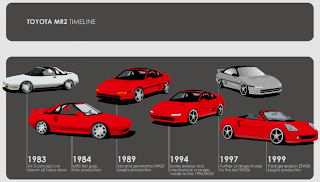A little help? Recent college grad goes looking for his first new car
steven cole smith
Pedro Falci of Coral Gables recently graduated from college, and soon he'll be starting a new job in Los Angeles. Which – like some of our larger cities in Florida – isn't known for its stellar public transportation system.
So Falci needs a car. "I didn't need a car in college," he says, "but I'm starting this new job, and I need a car now. This is my first time dealing with car dealers, and I'd be thankful for some advice."
No problem. And while Falci is interested in a particular new car – a 2011 Chevrolet Cruze LS – the suggestions apply to most every potential purchase.
He has some specific questions about the car-buying experience, so let's get to them:
What would be the best time of the year, and of the month, to buy a new car?
You'll hear and read plenty of advice that suggests the end of the month is the best time for multiple reasons, including the fact that dealers are hustling to make their quotas. I've seldom found that makes much of a difference. I believe any good, slow day, when there isn't much going on inside the store, the sales staff and the F&I (finance and insurance) managers tend to work a little harder to make a deal happen.
Is it true that when the 2012 model comes out prices of the 2011 model drop dramatically?
Not always. The Cruze you are considering was all-new for the 2011 model year, and since very few changes ae expected for the 2012 Cruze, I'd wouldn't look for big discounts. The Cruze replaced the Cobalt: When a car is getting replaced, or undergoing a major redesign, the previous' year's model usually is discounted considerably. There were, for example, very good deals on the 2010 Cobalt.
Why do prices vary so much in Florida from city to city, county to county?
Dealers pay the same price for new vehicles, whether the store is big or small. Differences are usually due to overhead, the value of the real estate the dealership is located on, and how badly the dealership needs to sell cars. I've gotten great deals at tiny country dealerships, and at huge big-city dealers. Sales tax can vary from county to county in Florida, but the differences are small.
Why do prices vary so much on different models of the Chevrolet Cruze?
The Cruze LS starts at $17,275, and the top-of-the-line Cruze LTZ can cost as much as $23,670. Manufacturers and dealers make a higher percentage of profit off "loaded" vehicles that have a lot of features, so they aren't always the best buy. Even the base Cruse LS has air conditioning, a stereo with satellite radio, stability control and all the other safety equipment you'd get on a pricier model. (And you do need air conditioning in Florida – a car without air takes a huge hit in resale value, eliminating any original savings.) Do you need a navigation system, or leather interior, or flashier tires and wheels? If you do, fine, but expect to pay for them on any new vehicle.
Is everything negotiable?
Tax, title and license aren't. In Florida, most dealers charge a "dealer fee" between $400 and $1,000, which is set by the dealer. They don't have to charge it, but if they do, they must charge it to everyone. Technically, then, it isn't negotiable, but when I deal, I expect them to either discount the car enough, or add enough to my trade-in, to where I'm comfortable with the numbers. Any add-on stickers for extra dealer-installed features, or "market adjustments," is negotiable. Be sure to check for rebates or financing deals on the manufacturer's web site, which usually asks for a zip code, because there may sometimes be regional rebates that apply only to Florida or surrounding states. Chevy, for instance, offers more than $400 for a "college discount" to current or just-graduated students.
A final word of advice: Shop around until you are satisfied with the deal. I've bought from the very first dealer I've visited, and I've bought after visiting a dozen. I always have a price in mind (which I typically do not share with the dealer), and if I can find it, I'm buying. And if I can't, I won't – or will reconsider whether the price I have in mind is reasonable.


















